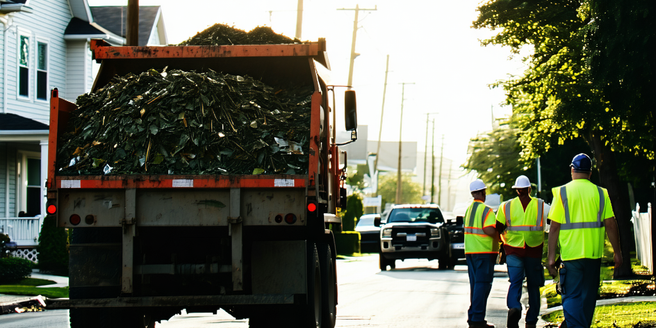Exploring Free Waste Removal Services

Understanding the Types of Waste Eligible for Free Removal Services
Free waste removal services often focus on certain types of waste that are considered non-hazardous and commonly generated in households. These include recyclables like paper, cardboard, glass, and plastics. Additionally, community awareness programs are sometimes offered to educate residents about proper waste segregation and disposal. Green waste, such as grass clippings, leaves, and small branches, might also be accepted. Some services may handle bulky items like furniture or appliances if arrangements are made in advance. However, hazardous waste such as chemicals, batteries, and paint is typically not included, requiring special handling and disposal methods. Understanding these limitations helps individuals better organize their waste and maximize the benefits of free services, reducing the overall volume of waste directed to landfills and supporting local environmental sustainability efforts.
How to Find Free Waste Removal Services in Your Area
Finding free waste removal services is easier than you might think. Start by checking with your local government’s waste management department, as many municipalities offer scheduled pickups for recyclable materials and yard waste at no additional cost. Community bulletin boards and local social media groups are also excellent places to discover neighborhood initiatives or volunteer groups offering assistance. Sometimes, reaching out to local environmental groups can provide additional resources and support. Some waste management companies provide free services for specific waste types during community clean-up events. Additionally, non-profit organizations dedicated to recycling and environmental sustainability may have programs in place. A little research and networking can lead to effective, no-cost waste management solutions, helping to keep your area clean and environmentally responsible.
The Environmental Impact of Utilizing Free Waste Removal Options
Embracing free waste removal services can significantly benefit the environment. These services encourage the proper segregation and recycling of waste, reducing the amount of refuse ending up in landfills. By promoting recycling, these programs help conserve natural resources and reduce pollution, as less energy is required to process recycled materials compared to new ones. When communities engage in free waste removal, they also foster a culture of environmental responsibility and awareness among residents. Additionally, these services can help lower carbon footprints by minimizing the need for individual waste disposal trips, collectively contributing to reduced greenhouse gas emissions. Ultimately, utilizing such services supports sustainable waste management practices, leading to healthier ecosystems and communities.
Comparing the Benefits of Free vs. Paid Waste Removal Services
When evaluating waste removal options, it’s essential to weigh the benefits of free versus paid services. Free services, typically offered by municipalities or community initiatives, provide accessible and cost-effective ways to manage household waste. They often cover basic waste types like recyclables and yard waste. However, they may have limitations regarding hazardous waste or specific types of bulky items. Paid services, on the other hand, offer a broader range of pick-up options, including handling hazardous materials and immediate bulk item removal. They offer convenience and flexibility but at a cost. Deciding between these options depends on individual needs, budget considerations, and the nature of the waste involved. Both play crucial roles in maintaining clean and sustainable communities.
Tips for Preparing Your Waste for a Free Removal Service
Proper preparation of your waste can maximize the efficiency of free removal services. Begin by sorting materials into categories such as recyclables, yard waste, and disposables. Ensure that recyclables are clean and free of contaminants like food residue to avoid contamination during processing. Yard waste should be bagged securely and placed in designated areas if required by the service provider. For bulk items, check with the service ahead of time to understand collection guidelines and potential restrictions. Avoid mixing different waste types, especially hazardous materials with regular refuse. Following these tips not only streamlines the collection process but also ensures that your waste is disposed of responsibly, supporting sustainable and environmentally friendly waste management practices.